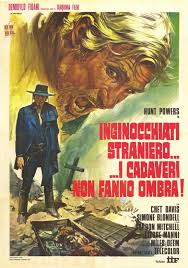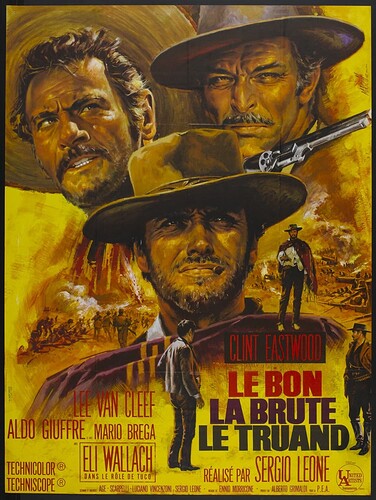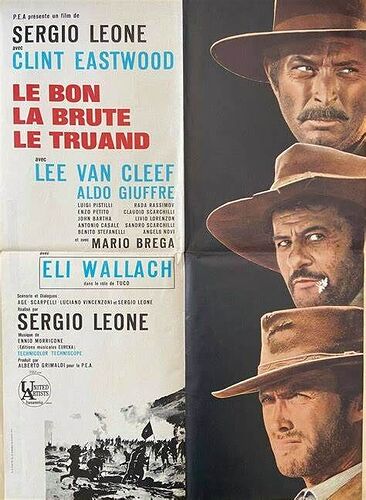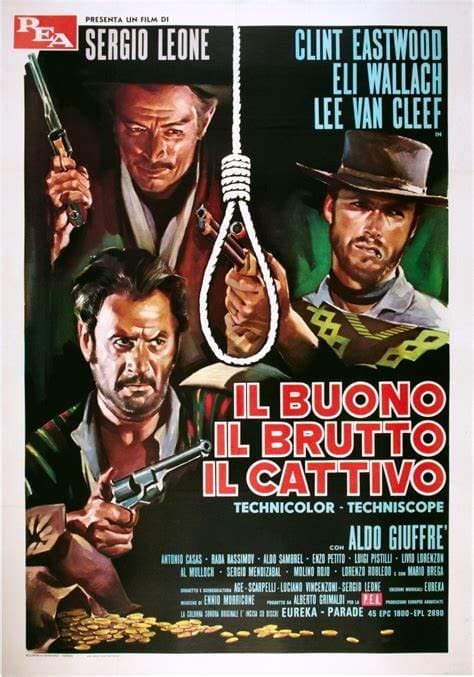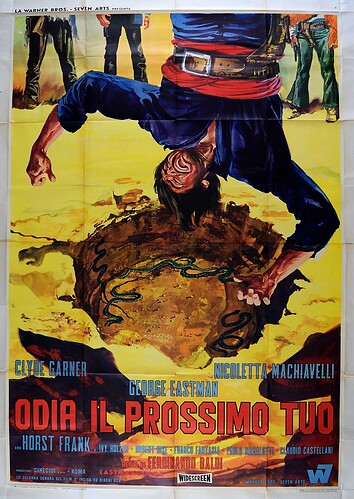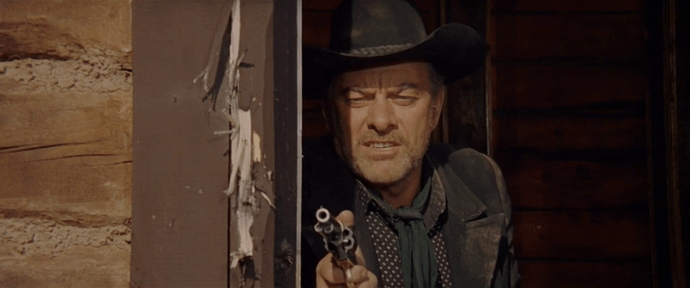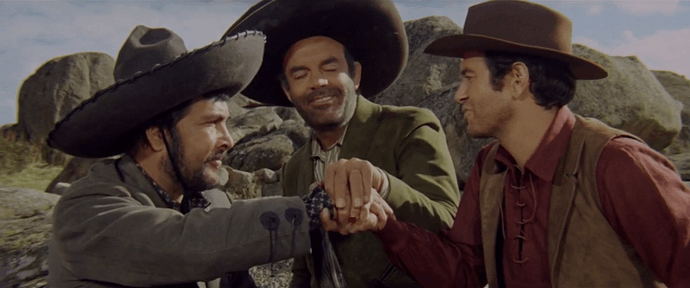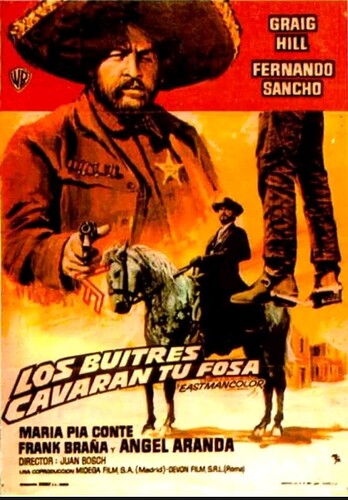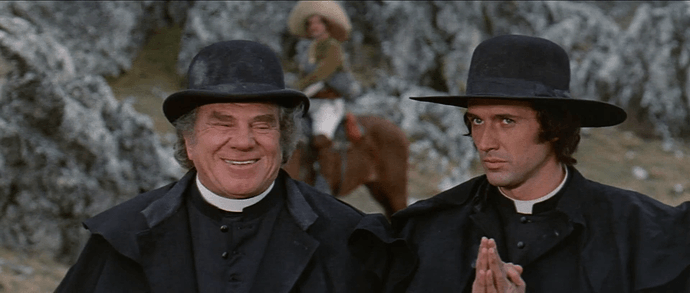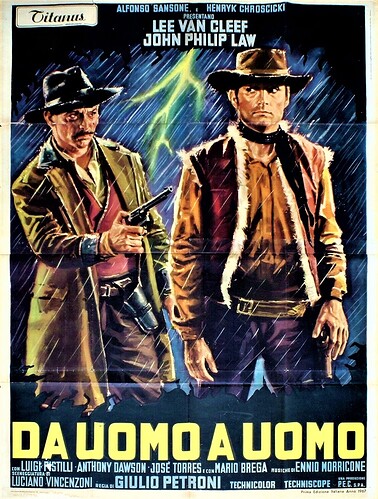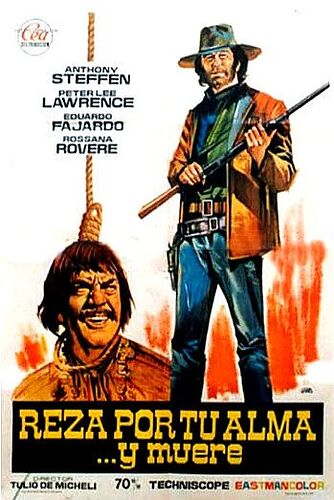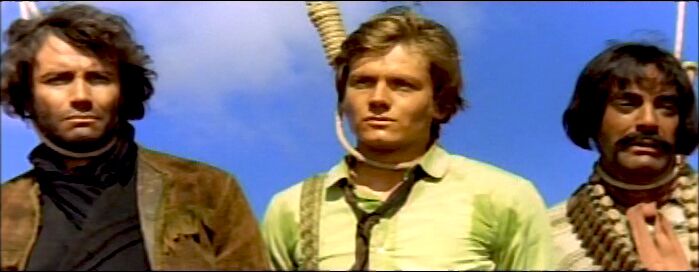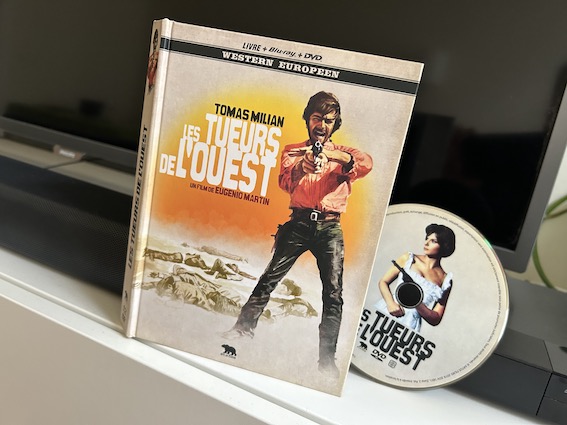19: La resa dei conti (1967), directed by Sergio Sollima
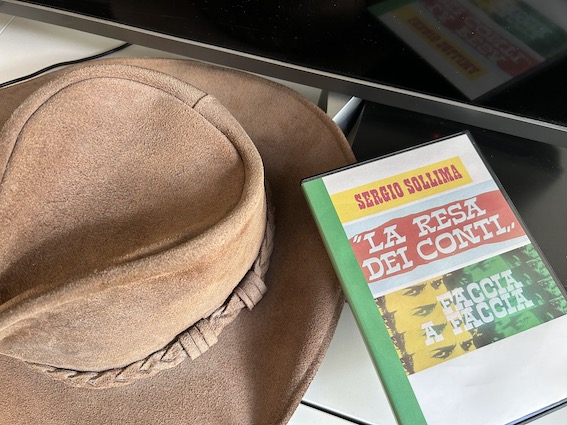
With the rigidly disdainful Austrian Baron von Schulenberg, played by Gérard Herter, born in Stuttgart, Germany, Sollima and his writers have created one of the more impressive and original villains of the Italian Western. The former officer von Schulenberg represents the Prussian school of the Imperial Austrian Army (1806–1867) and the Austro-Hungarian Armed Forces (1867–1918). With his crew cut and monocle, upright posture as if he had swallowed a broom, consummate manners, condescending arrogance, cultural sophistication—he plays Beethoven’s Für Elise on the piano—and aggressive competitiveness, he stands for the militaristic world view that led to the disaster of the First World War and, subsequently, the Second.
The fact that a villain is Austrian is rather unusual for genre films made after 1945; generally, this part was given to Germans (what’s the difference, you might ask). Perhaps the long history of military conflicts between Austria and Italy played a certain, small role in the choice of an Austrian as villain. Going back to the late Middle Ages, today’s northern Italy in particular was always a center of conflicting interests, which culminated in the three Italian Wars of Independence from 1848 to 1866. The efforts to unite Italy, the Risorgimento, reached their goal in 1871. During World War I, Austria and Italy once again faced each other as enemies, and at the end of the war all northern territories south of the Brenner Pass fell to Italy. This in turn led to acts of terrorism on the one side and state oppression on the other in the 1950s and 1960s.
That Austrian-American director Erich von Stroheim served as model for von Schulenberg can be considered certain. There was never a noble family von Schulenberg in Austria, and that the baron was almost completely omitted from the original German theatrical version is astonishing. It was not until 2005 that Der Gehetzte der Sierra Madre (the German title translates as “the hunted man of the Sierra Madre”) was finally released in its complete version on DVD in Germany.
Next: Eugenio Martín’s El precio de un hombre (1966).
